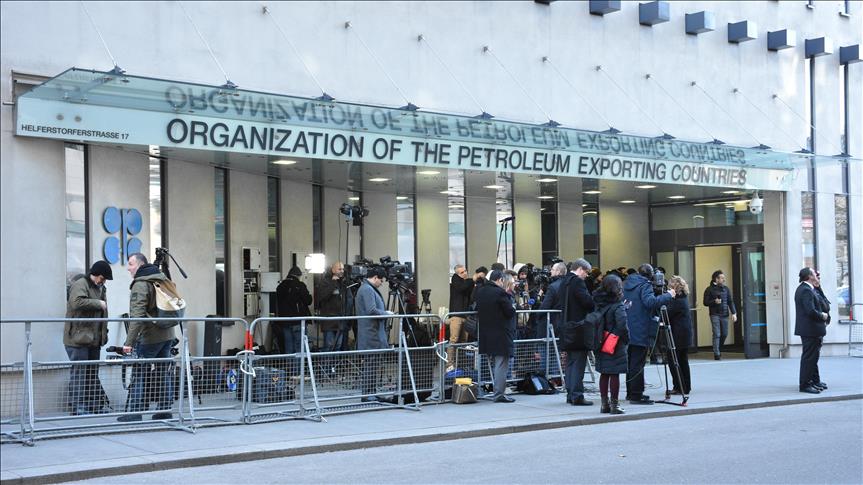After last week’s oil price crash, mostly due to the emergence of the new, heavily mutated coronavirus variant, omicron, all eyes are now on major oil producers of the Organization of Petroleum Exporting Countries and allies (OPEC+) group who are expected to take a cautious stance on any production volume change from January onwards.
The OPEC+ group is expected to hold their next ministerial meeting on Thursday to discuss the production volume for January, and as per the previously agreed schedule, the group will bring 400,000 barrels per day (bpd) online in December.
The 23-member group, which had agreed in July to raise output by 400,000 bpd from August to December and extend its production cut agreement from April 2022 to December 2022, currently holds 4.2 million bpd.
The group is expected to reassess the current market situation after the joint Strategic Petroleum Reserves (SPR) move of major oil-consuming countries led by the US, as well as the expected supply glut early next year and developments regarding the omicron variant of COVID-19, which has caused sharp oil price decreases since last week.
Describing omicron as a 'variant of concern,” the World Health Organization (WHO) said Sunday there is no evidence so far concerning the transmissibility or severity of the new strain.
However, several countries, including the UK, US, Canada, Germany, France, Japan, Israel, India, Australia, Netherlands, Philippines, Italy, Malta, Pakistan, Iran, United Arab Emirates, Qatar, Saudi Arabia, Kuwait and Oman have imposed travel bans on African nations amid fears of its spread.
Meanwhile, Russia's Deputy Prime Minister Alexander Novak said there is no need for immediate action to balance the oil market in response to reports that the OPEC+ group may tweak its output schedule over potentially lower demand resulting from the new COVID-19 strain.
While Saudi Arabia’s Energy Minister Prince Abdulaziz bin Salman also drew attention to uncertainties about the new variant’s impact, the OPEC group will move their joint technical committee to Wednesday from Monday and the joint ministerial monitoring committee to Thursday instead of Tuesday to better evaluate its impact.
-Volumes from SPR sales are not 'significant', but could change supply prospects
The group will also respond to the recent oil release decision of the US-led group from their Strategic Petroleum Reserves (SPR) that intends to provide additional market supply and lower crude prices.
The reserve release of around 70-80 million barrels in total was supported by China, India, Japan, South Korea and the UK, with a contribution from the US of 50 million barrels, the largest SPR holder in the world.
Robert McNally, the founder and president of Washington-based RapidanEnergy, told Anadolu Agency that both the SPR releases and omicron variant constitutes the type of change in market conditions that could impel OPEC+ to deviate from its plan to increase quotas by 400,000 bpd per month.
The former White House official McNally relayed that uncertainties would make it difficult to estimate the possible moves of the group and said: 'all options are on the table'.
'Since late last week, OPEC+ officials like market participants are scrambling to reassess a fundamental outlook for early next year that suddenly looks much more uncertain,' he said.
Sara Vakhshouri, founder and president of SVB Energy International, based in Washington and Dubai, recalled that the collective SPR release would add physical barrels to the market, although she said the volumes that were brought online were not significant, but would 'changes the supply prospects.'
'Also the new variant of Covid-19 and locking out Africa could have a negative impact on demand… In light of all of these, OPEC+ will carefully study the market's fundamentals’ trajectory and will decide to either continue as it was planned before or take a different direction,' she said.
Matt Stanley, director of Star Fuels, said the group 'is in a very delicate position right now' and will want to maintain integrity.
'So, I wouldn't be surprised if the group defers a decision for a day or two whilst the market absorbs news around omicron,' he said.
Stanley also stressed that investor concerns are mainly derived from government reactions to COVID-19 variants.
By Sibel Morrow and Firdevs Yuksel
Anadolu Agency
energy@aa.com.tr


